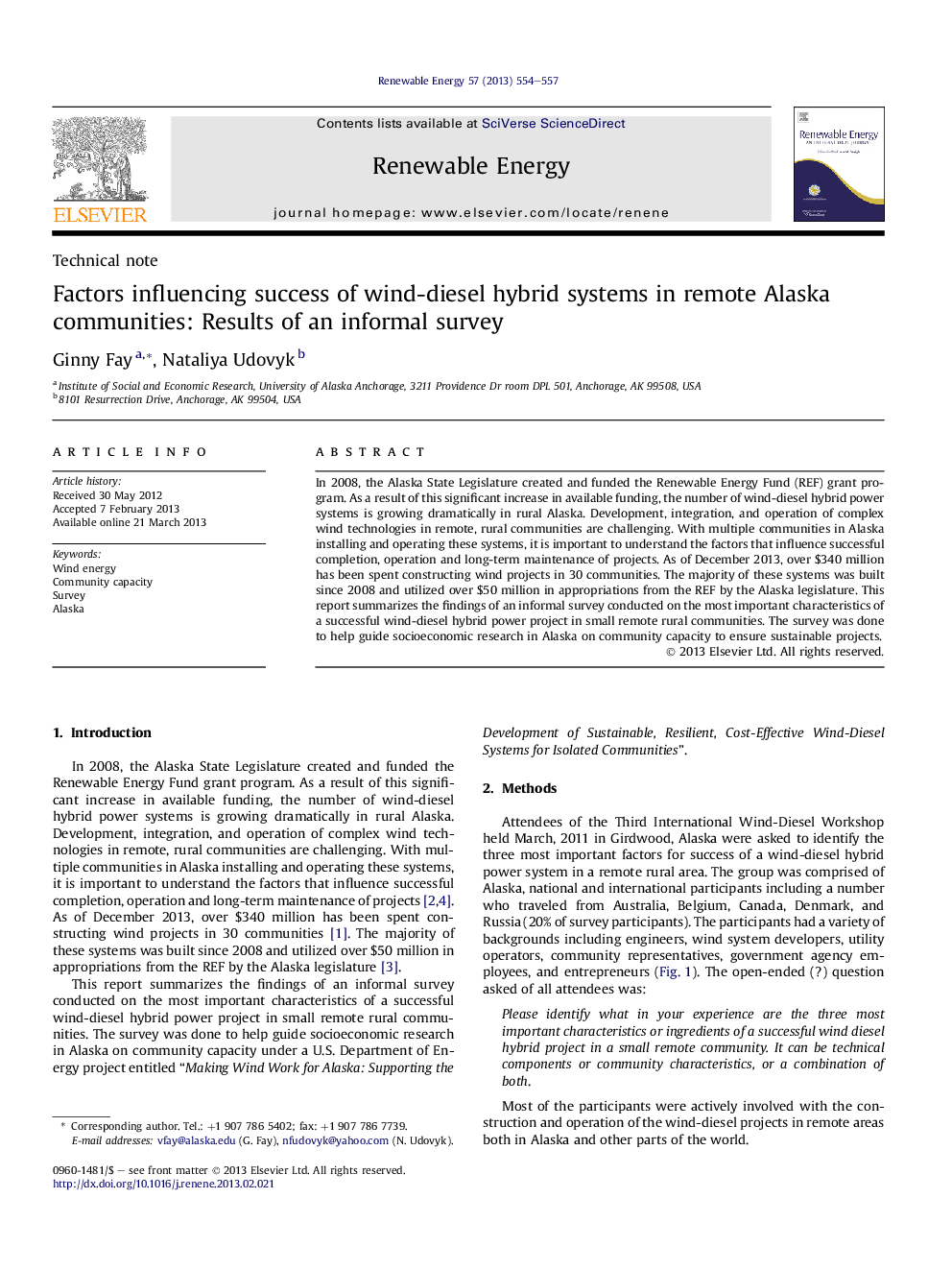| Article ID | Journal | Published Year | Pages | File Type |
|---|---|---|---|---|
| 300327 | Renewable Energy | 2013 | 4 Pages |
In 2008, the Alaska State Legislature created and funded the Renewable Energy Fund (REF) grant program. As a result of this significant increase in available funding, the number of wind-diesel hybrid power systems is growing dramatically in rural Alaska. Development, integration, and operation of complex wind technologies in remote, rural communities are challenging. With multiple communities in Alaska installing and operating these systems, it is important to understand the factors that influence successful completion, operation and long-term maintenance of projects. As of December 2013, over $340 million has been spent constructing wind projects in 30 communities. The majority of these systems was built since 2008 and utilized over $50 million in appropriations from the REF by the Alaska legislature. This report summarizes the findings of an informal survey conducted on the most important characteristics of a successful wind-diesel hybrid power project in small remote rural communities. The survey was done to help guide socioeconomic research in Alaska on community capacity to ensure sustainable projects.
► Development and operation of complex wind technologies in remote communities is challenging. ► The survey was conducted to guide socioeconomic research in Alaska on community capacity. ► Social factors were cited as frequently as the highest ranking technical factors. ► Community's interest is a significant factor without for long-term success. ► The second ranked social factor was local work-force training and development.
